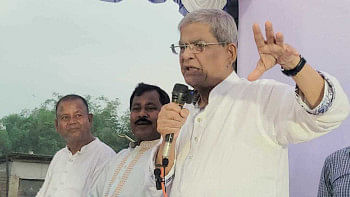Businesses upbeat over tax measures

Business chambers and trade bodies welcomed the business-friendly measures in the proposed budget for the next fiscal year as the country's economy strives to recover from the fallouts of the pandemic, the Russia-Ukraine war and high inflation.
Some tax measures proposed by the government will help attract investment in the private sector, they said.
Md Jashim Uddin, president of the Federation of Bangladesh Chambers of Commerce and Industry (FBCCI), said bringing all exporters under the uniform tax rate, which is currently available only to the garment sector, had long been a major demand of businesspeople.
In the budget proposal presented in parliament on Thursday, the government proposed making the uniform tax rates of 12 percent for non-green factories and 10 percent for green factories applicable to all exporters.
He said controlling inflation will be the biggest challenge in the implementation of the budget.
He also criticised the finance minister's proposal to give amnesty to laundered money by allowing black money to be legalised by paying 7 to 15 percent tax.
The Metropolitan Chamber of Commerce and Industry (MCCI) is happy to see that this year's budget proposal is not like other conventional budgets and that ensuring a stable livelihood has received due focus, MCCI President Md Saiful Islam said in a statement.
"We know that future economic disruptions besides the current ones caused by the pandemic can actually increase the final budget deficit," Islam said suggesting for effective financial management to limit expenditure on the financing of government projects.
The MCCI also believed that the priority of the government will be to ensure the health and economic security of citizens as much as possible. Simultaneously, given the current backdrop of global crises and price hikes, government support is even more important to keep energy, food and fertilisers prices under control.
It welcomed the government prioritising five areas in the budget -- inflation containment, agriculture and overall food security, human resource development, boosting domestic investment, increasing exports and promoting export diversification, and job creation and rural development.
The Foreign Investors' Chamber of Commerce and Industry (FICCI) said the GDP growth target of 7.5 percent is achievable if, among other factors, the GDP-investment ratio increases to the expected level.
Corporate tax rate for certain listed and non-listed companies will be reduced by 2.5 percent subject to certain conditions, according to the proposed budget.
The policy trend of corporate tax reduction is a welcome one, but upon considering the current economic condition and infrastructure, the proposed cash transaction limit must be increased, the FICCI said.
Tax deduction at source from payment to raw material supplier will be reduced to 4 percent from 7 percent, which will increase cash flow.
"Insertion of the definition of export will reduce the complexities of export of goods and services," said FICCI said.
Dhaka Chamber of Commerce and Industry (DCCI) in a statement said enhancing private sector investment, employment generation, revenue collection and financing are some of the challenges of the proposed budget.
Budget implementation is a great challenge, the DCCI said, adding that the inconsistency between income and expenditure in the proposed budget may lead to dependency on bank borrowing or loans from foreign source.
Mohammad Hatem, executive president of Bangladesh Knitwear Manufacturers and Exporters Association (BKMEA), demanded that the government consider keeping the source tax at 0.5 percent instead of 1 percent proposed in the budget.
Anwar-ul-Alam Chowdhury Parvez, president of Bangladesh Chamber of Industries (BCI), welcomed the uniform tax rates but also demanded continuation of source tax at 0.5 percent.
He also suggested offering more facilities to start-up ventures so that they can grow and generate employment.
The president of American Chamber of Commerce in Bangladesh, Syed Ershad Ahmed, expected that more incentive would be extended to the agriculture sector.
He said prices of agricultural equipment and hybrid vehicles should be reduced and that no significant economic growth is conceivable without a sustained foreign exchange reserve growth.
"Hence, instead of gross import ban, we should speed up foreign-funded projects' implementation and reconsider own-funded projects that have sizeable import components.
"We strongly recommend effective modernisation in managing all ports' operations and allowance of bonded warehouse facility for non-RMG exports too," Ahmed added.
Bangladesh Textile Mills Association (BTMA) were pleased with the government's proposed withdrawal of 15 percent VAT on sales of PET chips and reduction of VAT on sales of man-made fibre to Tk 3 per kg from Tk 6.
Md Shahadat Hossain, president of the Institute of Chartered Accountants of Bangladesh, said conditional reduction in tax rates for certain types of companies is a good initiative.
He said making the uniform tax rate applicable to all exporters will encourage diversification of export of goods and services.

 For all latest news, follow The Daily Star's Google News channel.
For all latest news, follow The Daily Star's Google News channel. 



Comments